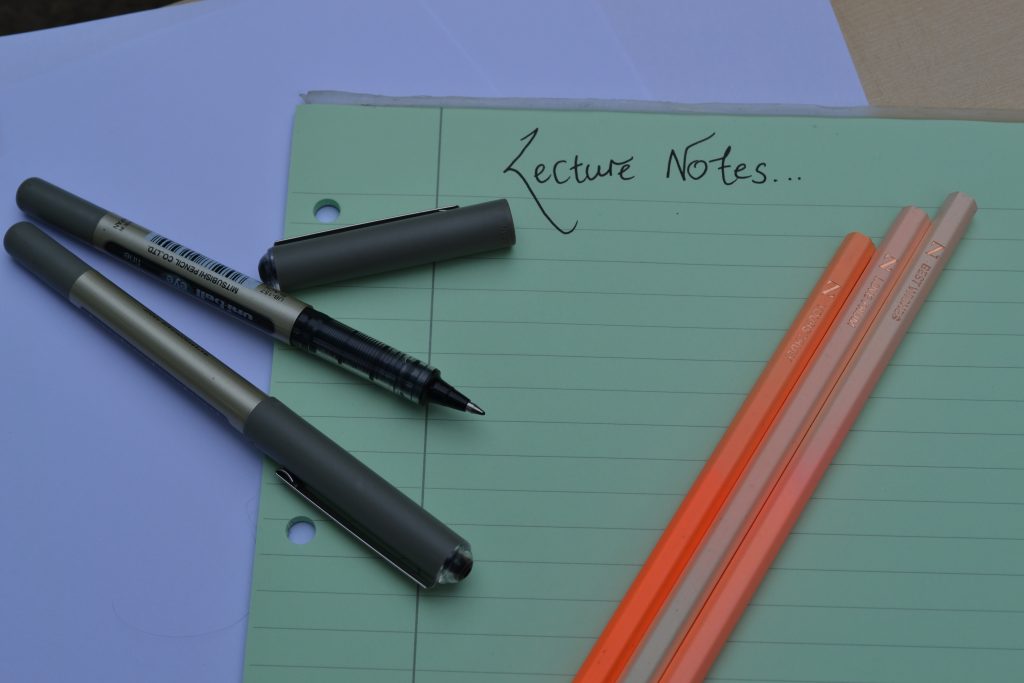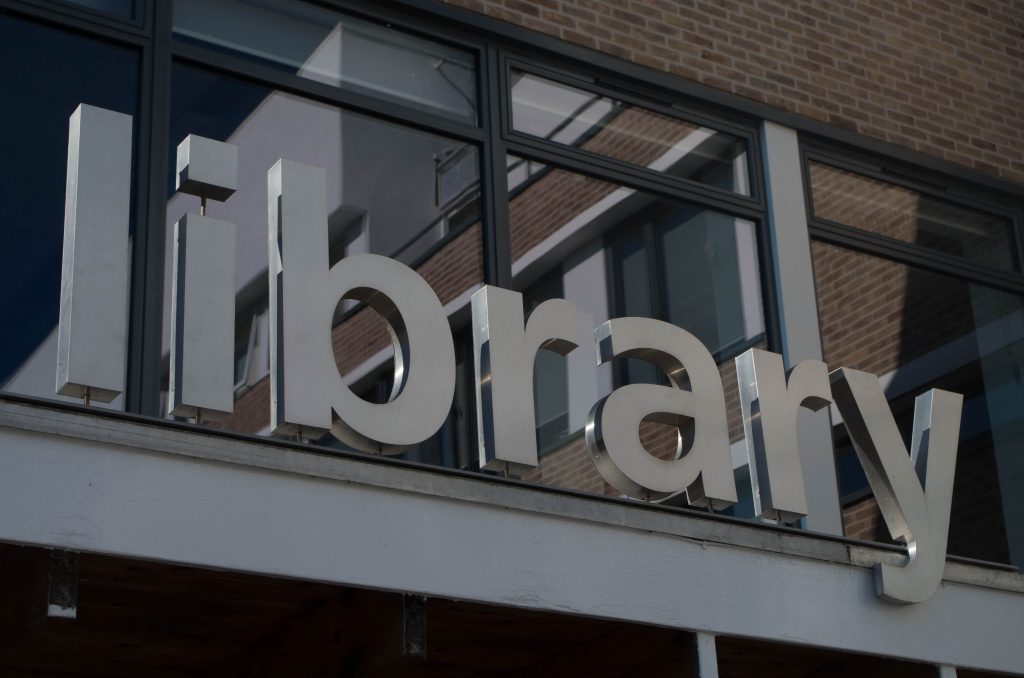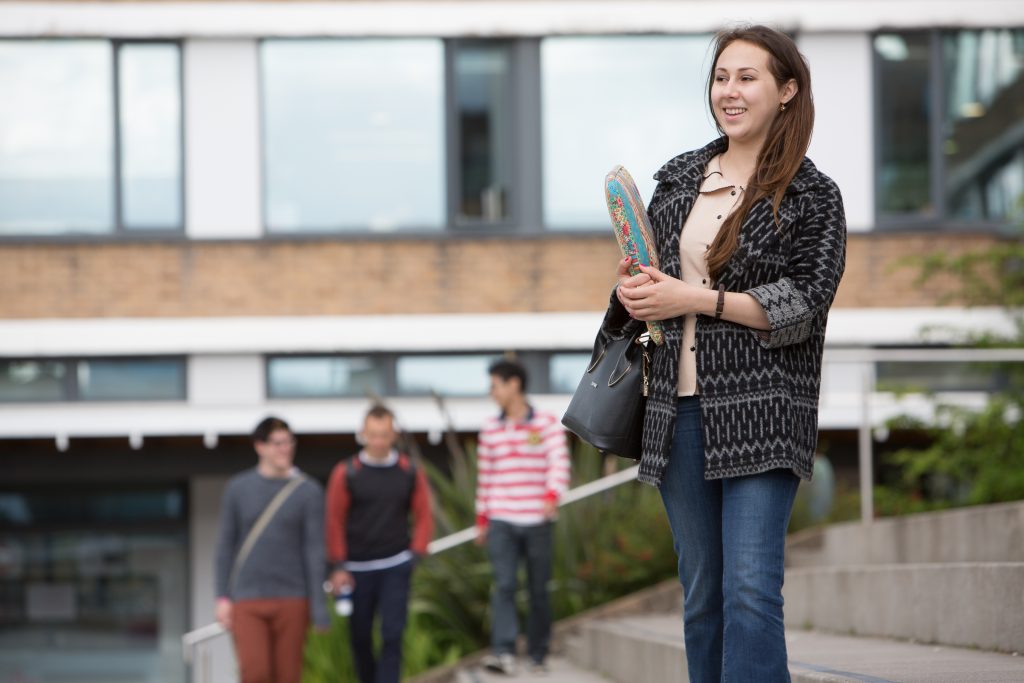 by Hannah (Student Blogger: BSc Biological Sciences)
by Hannah (Student Blogger: BSc Biological Sciences)
When you first arrive at University you’ll probably be bombarded by statements from older students like, “oh I wish I was still in first year” and “ah first year’s the best year at uni”, and it is, in so many ways. That doesn’t mean that second and third, or even fourth, if you’re staying longer, aren’t great. Going into my third year now feels both incredibly daunting as well as comforting and somewhat exciting. Although first year is the best year socially and in terms of your new surroundings, it can also be notoriously difficult if you have feelings of anxiety.
It’s completely natural to feel anxious about starting university and even to feel anxious whilst you’re here. There’s a variety of changes to go through and a lot of pressures you may never even have dealt with before. Finding the perfect balance when you’re thrust into this adult world whilst still feeling like a teenager can be very difficult. Only now going into my final year do I personally feel like I’ve settled into Lancaster and know how to tackle the challenges of the coming year. Truthfully, everyone is different – you may seamlessly transition into life here, or you may find it difficult to adjust to your new-found surroundings.
There’s one thing for certain though, there’s always help available. Looking back, I wish that someone had convinced me to get help sooner rather than later. Whether it’s confidentially talking to a freshers rep, your academic advisor or a counsellor at the Base, talking to someone can always brighten things up. It’s a challenge opening up about certain things, I know, but thankfully you’ll realise that you won’t be going through this alone. Part of the journey of going to university is discovering how you work and what’s best for you. It’s been a hard two years, but I can firmly say that I’ve finally cracked it, academically and socially. Sometimes it really does feel like a rollercoaster of emotions, but the satisfaction of pulling through the other end is great.
From finding ‘friends for life’ to getting that top degree, or even just managing to do your laundry and cook for yourself, there can be a lot of high expectations built on coming to university. My best advice to you would be to not have any when you first come here. Lancaster is a truly fantastic place, but with any university experience, it’s easy to feel the pressure. Take each day as it comes, and don’t get hung up on finding any of the things you thought you would. Lancaster is built on a fantastically eclectic group of people, from a variety of different backgrounds, interested in a multitude of activities. As cliché as it sounds, being yourself really is the best way to be. You’ll find a group of people just like you, who make you happy and have the same interests, helping to make your transition here as smooth as possible.
As soon as you can, head down to the freshers fair and sign up to as many things as possible. Even if you don’t join them officially, attend the taster sessions and meet new people. Get out there as much as you can. Remember to take some time for yourself and to not let everything pile up on top of you at once – you don’t want to feel like you’re drowning. Your Lancaster experience will be what you make it; don’t waste it.

 by Melissa (Student Blogger: MA English Literature)
by Melissa (Student Blogger: MA English Literature)


 by Catherine (Student Blogger: BSc Computer Science)
by Catherine (Student Blogger: BSc Computer Science)

 Expect to be pushed out of your comfort zone. Lancaster University would not be doing you any favours if the experience here did not push you to develop. Sometimes you’ll find that a new learning experience really challenges you; perhaps it will be the experience of group-work, or speaking out in seminars, or giving presentations that cause concern. When this happens, try to see the experience as a learning opportunity. Even if it feels uncomfortable at the time, students tell us that they inevitably reach a point where they were glad to have had the chance to try something new and to develop new skills as a result. However, if the experience does turn into something that feels overwhelming, do not hesitate to talk to someone such as your Academic Tutor, your
Expect to be pushed out of your comfort zone. Lancaster University would not be doing you any favours if the experience here did not push you to develop. Sometimes you’ll find that a new learning experience really challenges you; perhaps it will be the experience of group-work, or speaking out in seminars, or giving presentations that cause concern. When this happens, try to see the experience as a learning opportunity. Even if it feels uncomfortable at the time, students tell us that they inevitably reach a point where they were glad to have had the chance to try something new and to develop new skills as a result. However, if the experience does turn into something that feels overwhelming, do not hesitate to talk to someone such as your Academic Tutor, your